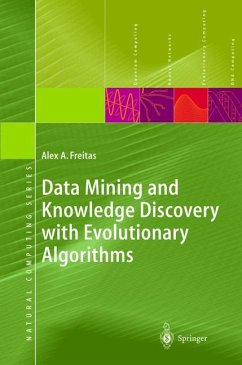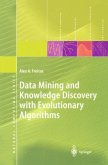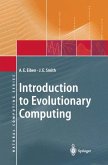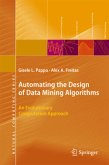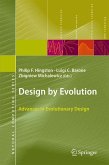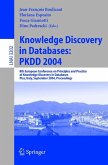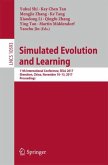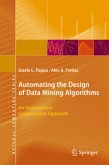This book addresses the integration of two areas of computer science, namely data mining and evolutionary algorithms. Both these areas have become increas ingly popular in the last few years, and their integration is currently an area of active research. In essence, data mining consists of extracting valid, comprehensible, and in teresting knowledge from data. Data mining is actually an interdisciplinary field, since there are many kinds of methods that can be used to extract knowledge from data. Arguably, data mining mainly uses methods from machine learning (a branch of artificial intelligence) and statistics (including statistical pattern recog nition). Our discussion of data mining and evolutionary algorithms is primarily based on machine learning concepts and principles. In particular, in this book we emphasize the importance of discovering comprehensible, interesting knowledge, which the user can potentially use to make intelligent decisions. In a nutshell, the motivation for applying evolutionary algorithms to data mining is that evolutionary algorithms are robust search methods which perform a global search in the space of candidate solutions (rules or another form of knowl edge representation). In contrast, most rule induction methods perform a local, greedy search in the space of candidate rules. Intuitively, the global search of evolutionary algorithms can discover interesting rules and patterns that would be missed by the greedy search.
From the reviews: "In the snappily-titled Data Mining and Knowledge Discovery with Evolutionary Algorithms, leading researcher Alex A Freitas introduces both data mining and evolutionary algorithms. ... The aim is to introduce and address the key challenges to a high level of detail. With an understanding gleaned from this book, and source code available freely on the web, the world of data mining is your oyster." (Application Development Advisor, January/February, 2003)

